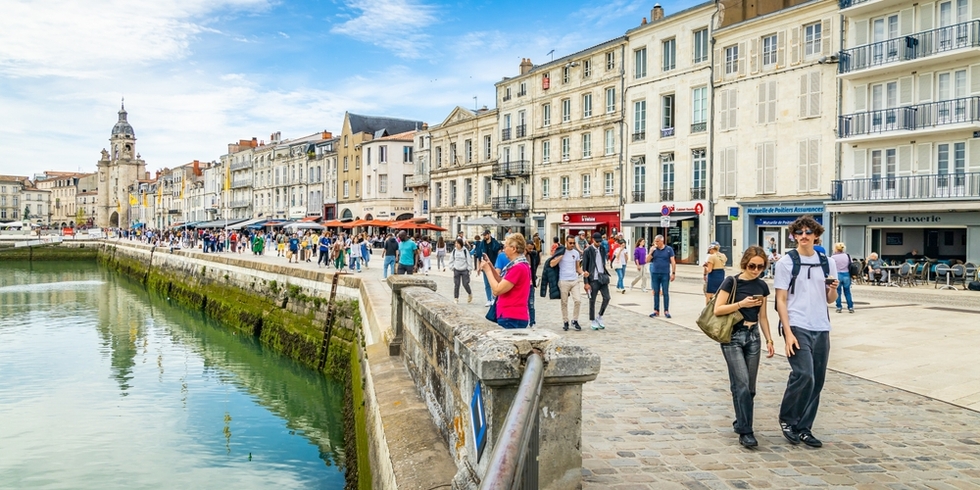467km (290 miles) SW of Paris; 145km (90 miles) SE of Nantes; 183km (113 miles) N of Bordeaux; 142km (88 miles) NW of Angoulême
La Rochelle is a historic port and ancient sailors’ city, formerly the stronghold of the Huguenots. It was founded as a fishing village in the 10th century on a rocky platform in the center of a marshland. Eleanor of Aquitaine gave La Rochelle a charter in 1199, freeing it from feudal dues. After becoming an independent city-state, the port capitalized on the wars between France and England. It was the departure point for the founders of Montreal. From the 14th to the 16th century, La Rochelle was one of France’s great maritime cities. It became the principal port between France and the colony of Canada, but France’s loss of Canada ruined its Atlantic trade.
As a hotbed of Protestant factions, it armed privateers to prey on Catholic vessels but was eventually besieged by Catholic troops, led by Cardinal Richelieu (with his Musketeers) and Jean Guiton. When Richelieu blockaded the port, La Rochelle bravely resisted. It took 15 months to starve the city into submission, during which time 25,000 citizens perished from hunger. On October 30, 1628, Richelieu entered the city and found only 5,000 survivors.
Today La Rochelle, a city of 77,000, is the cultural and administrative center of the Charente-Maritime département (administrative region, now part of the larger Nouvelle Aquitaine). Its famous city lights have earned it the title “City of Light.” While many of La Rochelle’s sights are old, the city is riddled with high-rise condos and home to the largest pleasure-boat basin in Europe. In summer, the city is overrun with visitors.









